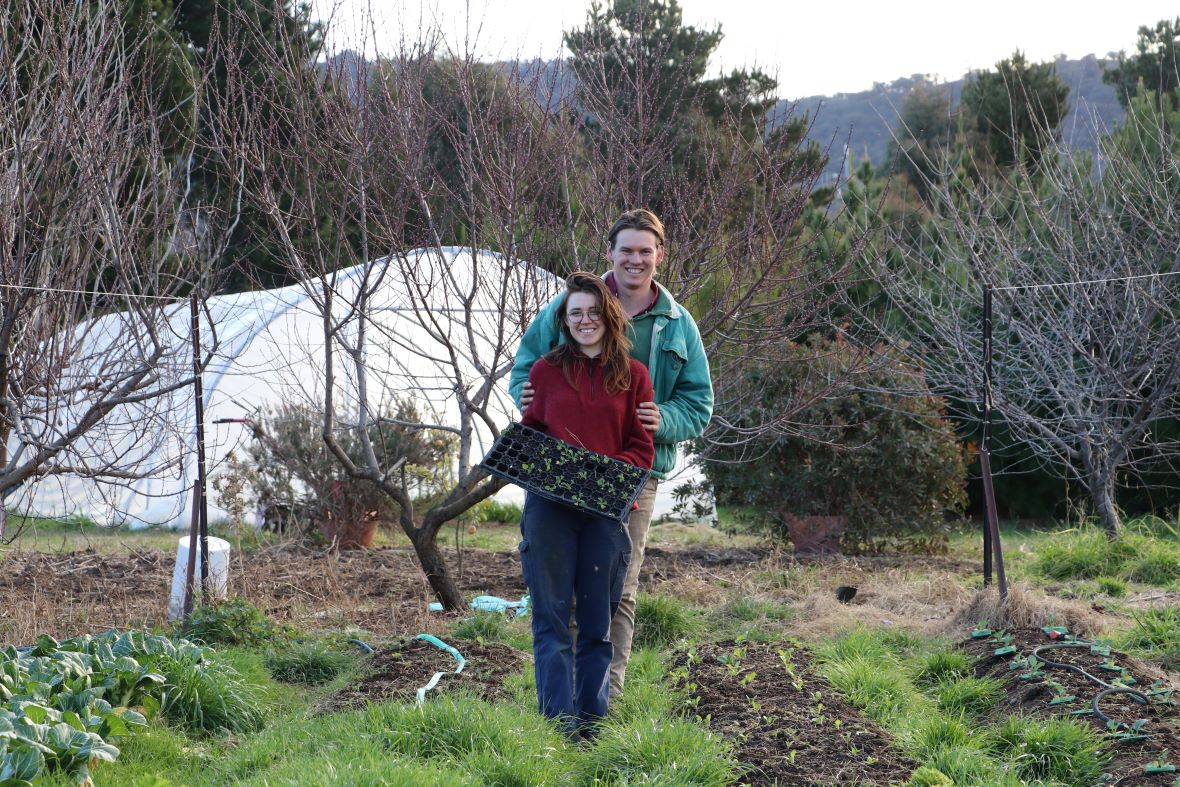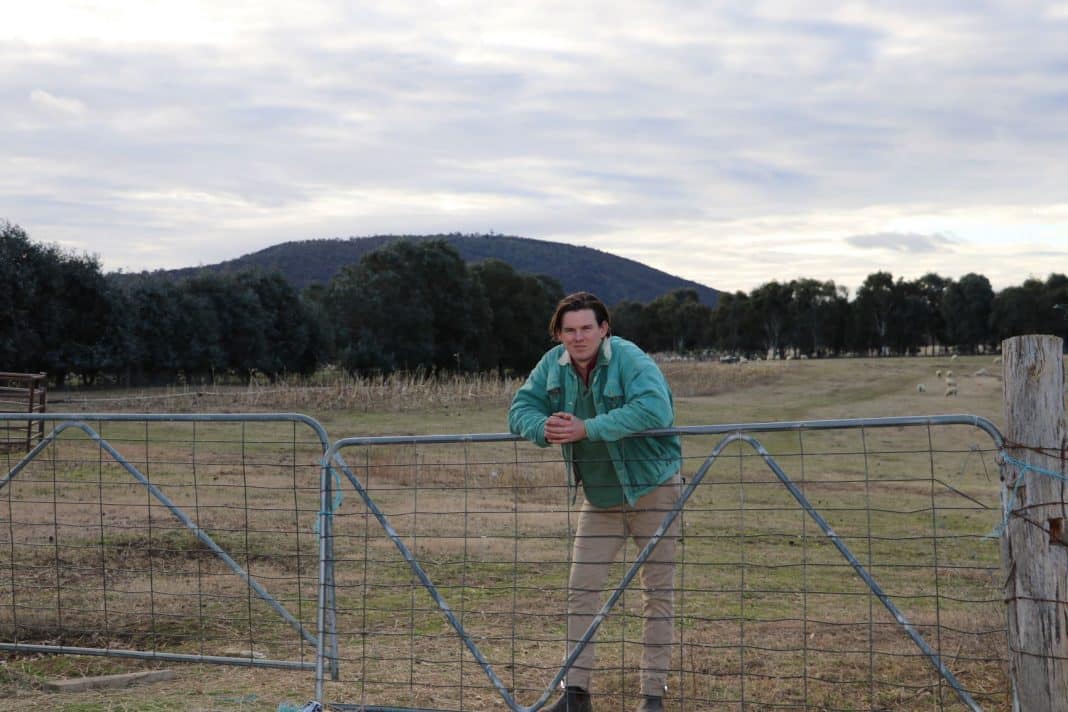Canberra may be the political heart of Australia, known for its population of public servants and influx of politicians, but unbeknownst to many, the national capital is also home to a diverse and passionate farming community.
In an effort to build Canberra’s agricultural landscape, the ACT Government is preparing the Capital Food and Fibre Strategy, with an aim to launch farming in the ACT onto the national stage.
So, what is the future of farming in Canberra? Canberra Daily journalist, Abbey Halter, investigates.
Farmer Fred McGrath Weber is no newcomer to Canberra’s agricultural sector, even at his youthful age.
At just 29 years old, Mr McGrath Weber is president of the ACT Rural Landholders Association and is in the midst of extensively regenerating his family property, Majura Valley Farm.
The mobile chicken shed is a Majura Valley Farm landmark, and he is pretty proud of the work he and his family have done to produce their holistic approach to chicken farming.
The flow-on effect from the chicken sheds has increased and improved the farm’s vegetable production by enhancing soil quality.
Farming on Majura Valley Farm pre-dates the official foundation of the national capital and is the oldest continuing working farm in the ACT, while Majura House is the oldest inhabited house in the Territory.
The family have big plans for Majura Valley Farm, hoping to realise its massive potential for agritourism and attract the Canberra community.
As part of the collective that represents the voice of farmers in the ACT region, Mr McGrath Weber revealed the group have been engaged with the ACT Government since the Strategy’s inception.
During the consultation process, Mr McGrath Weber said the Government and the Association have been working cooperatively, and it’s been a “great relationship”.
Hosting meetings, participating in workshops, along with submitting documents towards the discussion paper, are amongst the collaborations between the Government and the group. He said they will provide additional input when the draft Strategy is released.

What would you like to see in the Capital Food and Fibre Strategy?
Mr McGrath Weber said the Association have five key points in their submission to the ACT Government for the Strategy.
Protect agricultural land
The first action they would like to see implemented is an increased effort in protecting agricultural land in the ACT region.
“Fifteen per cent of the land in the ACT is rural land, 15 per cent is urban, and 70 per cent is public land – national parks,” Mr McGrath Weber said.
“For us, it’s really about ensuring when the city grows, as it’s guaranteed to expand, protecting the 15 per cent agricultural land, especially the land most beneficial for growing food for the city.”
Consumer connection
A second point the Association has made is to look at ways to connect the consumer with the growers – from the farm to the fork.
The initiative would tie into reducing some of the barriers to innovation along with providing funding where applicable to encourage new businesses and simplify supply chains, said Mr McGrath Weber.
He explained there are no abattoirs in the ACT or surrounding area. In order to sell a livestock product direct to the consumer, you have to drive three hours away.
So, addressing some of those barriers would expand and grow the industry in the ACT and, at the same time, create better frameworks for the wellbeing of livestock, which, in turn, creates better products.
“Everybody eats – it’s the key to our existence. So, I think the best way for people to know about the quality of their food, they need to connect directly to their food source and know what they’re eating, where it comes from,” Mr McGrath Weber said.
“That ensures the decisions they’re making are benefiting the climate and the broader community, and if people are able to purchase fresh produce from a farmer within the Territory, I think that’s going to produce much better products.
“Freshness and supporting local businesses make people feel a lot better about their consumption choices.”
Land security
Land security is a substantial issue for the Association, and Mr McGrath Weber said it is one of the main points in their submission. They’ve also brought the matter to the Government’s attention for several years.
“With most farmers on a short-term lease, this doesn’t provide any land security whatsoever,” he said.
“It’s very difficult to invest in your land, farm, and business to accomplish goals unless the land is protected, and if the policy is tied directly to planning then there’s no real future for a food bowl around our city.”
Agritourism
Mr McGrath Weber believes that agritourism should be a central part of the strategy and is passionate about bringing the public onto farms.
“You can see the benefit with tourism at the Canberra region wineries. It’s a great example of how people can go on a bit of an agritourism trail experience around the capital city,” he said.
“Imagine being able to bring more of those unique experiences to the capital and really cement our name as the Bush Capital.”
According to Mr McGrath Weber, agritourism would provide a massive boost to the ACT economy, complement the attractions already around the region, and “really put Canberra on the map”.
“But importantly, it also addresses a lot of opportunity around wellbeing and ensuring we do have green spaces around our city and providing food for the Capital and any future pandemics or bushfires and catastrophes … we would be very happy to have a food source direct within our city.”
Sustainable farming
Regarding the ability of ACT farmers to care for the environment, Mr McGrath Weber said they have a fairly solid track record of creating exceptional areas for wildlife, connectivity for public land, and also biodiverse habitats on their properties.
“There’s a real potential to not just focus on economic returns and provide food stewardship payments to farmers doing above and beyond with sustainability issues connected to climate change.”
In addition, ensuring ACT farmers have sufficient access to water and they are producing food should be prioritised above green grasses for aesthetic value.
What do you hope the future of farming and agriculture in Canberra will look like?
“It’s about a paradigm shift. I hope the Canberra community acknowledge there are farmers in the ACT and food is really important to be grown locally.”
Canberra Daily would love to hear from you about a story idea in the Canberra and surrounding region. Click here to submit a news tip.



